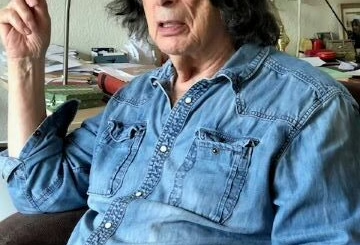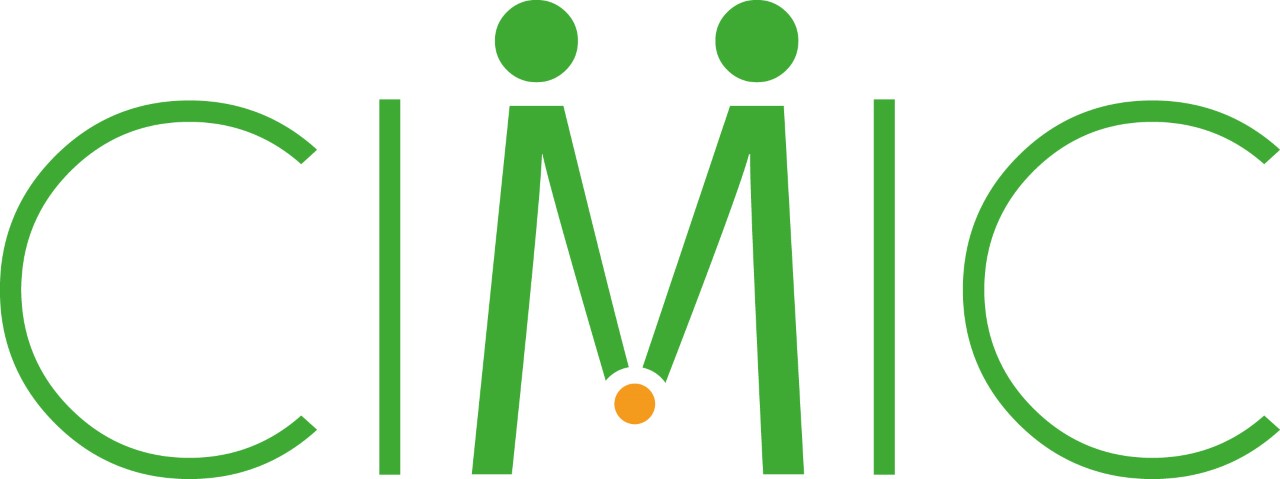Thinking about the Sahel (deel 5 en 6)
Het is als een open deur intrappen: de instabiliteit in de hele Sahel, van de Atlantische Oceaan in het westen tot de Rode Zee in het oosten, is de afgelopen maanden alleen maar toegenomen. Vooral Burkina Faso, Mali en Niger dreigen weg te zinken in armoede, geweld, chaos en dictatuur.
De – schaarse – berichtgeving over wat er écht aan de hand is, gaat alle kanten uit. Enerzijds zijn er de vreugdekreten van de ‘neosoevereinisten’ om de herwonnen onafhankelijkheid van de Sahellanden die eindelijk hebben afgerekend met de vermaledijde ex-kolonisator Frankrijk en zijn militaire interventies en neokoloniale belangen, maar anderzijds is de veiligheidssituatie er nog nooit zo slecht geweest met vrijwel dagelijkse aanvallen van jihadistische gewapende groepen, terwijl ook de reguliere legers niet vrijuit gaan bij zware mensenrechtenschendingen.
De samenwerking met de ‘nieuwe militaire partner’ Rusland heeft vooralsnog niet de verhoopte resultaten opgeleverd die de militaire machthebbers voor ogen hadden, integendeel.
Van een herstel van een min of meer democratisch bestuur is zelfs helemaal geen sprake meer. De militaire junta’s zijn duidelijk niet van plan om snel te vertrekken, al zou de toenemende ontevredenheid onder de bevolking hen daartoe wel eens kunnen dwingen.
In Mali is eerste minister Choguel Kokalla Maïga, die zelf in 2021 door de militairen was benoemd om de overgangsregering te leiden, op woensdag 20 november met onmiddellijke ingang ontslagen – samen met zijn regering – nadat hij voorzichtige kritiek had geuit op de militaire junta. Hij betreurde in een toespraak dat hij uitgesloten blijft van de besluitvorming over de vraag of de generaals aan de macht kunnen blijven. Mali en de andere Sahellanden glijden helemaal af naar dictaturen.
De Nederlandse journalist en West-Afrikakenner, Bram Posthumus, schreef de afgelopen zomer een zeer lezenswaardige zevendelige blog over de Sahel, een regio die hij vanuit zijn jarenlange ervaring als correspondent bijzonder goed kent en waar hij nog vele contacten heeft. Wij brengen zijn bijdragen in vier afleveringen in de CIMIC-Nieuwsbrieven tot december. Hierbij delen vijf en zes.
Jan Van Criekinge

More dunderheads
It was not only France that blundered its way through the savannah and the desert. We also had to suffer the creation of the US Africa Command AFRICOM, in 2008. AFRICOM has succeeded in complicating things beyond recognition, principally by unwittingly creating a West African Coup Plotters Club who had become friends through the AFRICOM-organised annual Flintlock exercises they attended.
So thanks in part to AFRICOM, we now have three illegitimate, inept, mendacious, corrupt, self-serving power-hungry juntas in Mali, Burkina Faso and Niger, [nvdr: this references a report that the independent Amsterdam-based publisher ZAM released with impeccable timing, on July 10th. It rips away the curtain and gives us rare insights into the real living conditions of people having to endure the jihadist terrorist menace and the violence of junta-led states] who have decided to stay in power and hold on to their lucrative sinecures until they are removed.
On July 6th 2024 they established what they call the Confederation of Sahel States (Confédération des états sahéliens), which has no legitimacy, will not be recognised by any of the neighbours (let alone further afield) and will further complicate the fight against armed extremism, a fight in which none of the juntas are interested.
However, these three ‘enjoy’ the protection of the next idiot that has come barging in – Russia, also the next entirely predictable and bloody failure.
Russian mercenaries have proved to be far more prolific killers of unarmed civilians than the Americans or the French and now it’s them blundering on, carrying their racism as a badge of honour.
Under Russian protection and tutelage, the juntas have intensified the worst excesses of the elected governments they replaced, with increased violent repression and deep hostility to independent media and pro-democracy activists.
Burkina Faso is, arguably, the worst case. Led by the increasingly unhinged Captain Ibrahim Traoré, its junta is weak and under constant threat. Hence the endless litany of human rights abuses – disappearances, abductions, forced recruitments, torture, extrajudicial killings, death threats and other forms of intimidation – specifically targeting journalists and civil society activists in order to bully the population into obedience and maintain a carefully cultivated war psychosis.

We have had the arbitrary arrest and subsequent disappearance of the widely respected pro-democracy and pro-transparency activist and lawyer Maître Guy Hervé Kam, journalists like Serge Oulon of L’Événement, Burkina Faso’s (and arguably the francophone world’s) best newspaper, and so on, the list is long and getting longer.
It does not end there: army officers who disagree with the Dear Leader have also disappeared, incarcerated, tortured or killed. The two things to watch in Burkina Faso? The terrible insecurity situation and army divisions.
Traoré and his violent enforcers betray the heritage of the country’s true great heroes, Thomas Sankara and Norbert Zongo every single day.
Having said that, there is no denying that Traoré, in spite of being a fraud, has an army of devoted followers, still believing he is the Messiah who will deliver peace and prosperity to this brutalised nation that he, in fact, brutalises some more. But there is only so much abject non-delivery that the Burkinabè will tolerate.
There already is a groundswell of discontent in the army and among ordinary folks in many different corners of the country, which he counters in classic autocrat fashion… by blaming everyone but himself.
Hence the idiotic accusations against Côte d’Ivoire, such as the mendacious assertion that it diminishes electricity supply to Mali in order to provoke public unrest or the repeated false statement of its harbouring dissidents.
(Mind you, with anything between four and six million of your fellow Burkinabè in Côte d’Ivoire you are bound to find a bunch that do not agree with the Dear Leader.) But Côte d’Ivoire will not be the cause of Traoré’s departure…
Malians, meanwhile, are thoroughly fed up with their energy utility, Électricité du Mali (EDM) and its worsening ‘performance’. It is causing severe economic stress, is currently at the heart of many discussions on the streets of the capital Bamako and elsewhere.
EDM is also one of the issues splitting the junta right down the middle into two camps – one led by Colonel Assimi Goïta (nvdr: juntaleider en interim-president) and one led by Colonel Sadio Camara (nvdr: minister van Defensie), Mali’s principal link to Russia.
Malians are also fed up with the junta’s constant lies about the wars, as the jihadist threat keeps spreading, slowly encircling the capital.
Meanwhile, the army and their Russian ‘instructors’ terrorise and brutalise the people in the centre, the north and the northeast of the country. In an echo of the 1960s, bloody revenge attacks are carried out in the North after the easy government victory at Kidal, late 2023.
Kidal, where the Tuareg rebels had their base, was easy because this was the only enemy with an address. So far, this ‘victory’ has led to more refugees and displaced persons (Kidal was empty when the soldiers drove in), increasingly strained relations with Algeria, a rift with the Tuareg community and the inevitable regrouping and formation of new Tuareg rebellions.
The impact on the jihadist situation is nil; the main thing this Russia-junta tandem of terror has managed to create is the prospect of fresh insurrections, more revenge and thus more violence.
The things to watch in Mali are, therefore: the endless power cuts, the calamitous state of the economy and the gratuitous industrial-scale violence visited on unarmed civilians.
And the thing to watch in Niger? The never-ending corrupt shenanigans around defence procurements and Niger’s exports, currently uranium and soon oil. Unlike Mali and Burkina Faso, it does not need the other Sahel states for anything. Like nearby Guinea, which can survive selling its bauxite to the Chinese, the Russians and the Emiratis without ECOWAS getting in the way, Niger can survive on what it sells.
Having just ejected the French Orano company from its mines, Niger’s uranium will go to Russia or anywhere else it wants. Oil will soon go to China, which runs the extraction and transport operation through the China National Petroleum Corporation. The generals who grabbed power on 26 July 2023 belong to the same elite as the elected president they removed in a game of musical chairs that started in 1974, the year of the first military coup.
This is about rent, which will have to be divided among the generals and colonels and hangers-on before the inevitability of their removal. Expect them to be at each other’s throats before the year is out.

What will replace the catastrophic juntas and their Russian backers is anyone’s guess. What is certain, though, is that just as in Senegal where a democratic change of power occurred this year, religion will inevitably be playing an increasingly central role, something the French could have realised before they looked the other way as Algerian generals short-circuited the outcome of a free and fair election in 1991.
And so the next instalment will take a look at religion.
Religion, what of it?
“Can anyone explain to me why I should listen to some brat with a gun telling me how to live MY Islam?” A question a Malian friend of mine blurted out as we were standing on a street in the Badalabougou area of the capital Bamako, discussing the vandalism committed in Timbuktu, the City of 333 Saints, by marauding hordes claiming to know Islam better than the inhabitants of Timbuktu themselves.
Not far from where we were talking, on the same street, loomed the large mosque where the then still relatively obscure and later very famous imam Mahmoud Dicko was already serving.
In the largely (and in a lot of places predominantly) secular West, religion is a blind spot. And that secularity is a handicap, because it obscures something that is central to almost everyone’s life in the Sahel – and arguably on the entire continent.
The spiritual dimension is never far from peoples’ minds, as they do their daily chores, worry about staying alive, try and earn enough income to buy food, send the children to school, get some decent clothes to wear and have a roof over their heads. Close to the surface lie the heretofore and the hereafter. And that merits attention.
Central to that dimension are centuries-old purely African traditions and – depending on where you live – one of the two imported monotheistic religions: Christianity and Islam.
The two tend to co-exist pretty easily. However, the arrival on the scene of radicalised extremist movements of young men with arms, often led by forceful and effective preachers has bulldozered away previous, delicate social and economic balances that existed throughout the region and has pitted Muslim against Muslim. How on earth do you manage this?
The Senegalese researcher and writer Thierno S.D. Niang, who works in the field of conflict prevention, wrote a book on the situation in the Sahel, in which he brings to the fore exactly this missing dimension. Islam, originally alien to the African continent became nevertheless a force in the anti-colonial struggle, especially towards the end of the 19th Century.
Anyone who has ever been to Senegal will not fail to see the iconic portrait of Cheikh Amadou Bamba, the founder of Senegal’s most influential brotherhood, the Mourides and the leader of peaceful resistance against French colonialism.
The model was prayer and Islamic scholarship against French colonial repression. We know the outcome of that contest: Senegal is an independent republic and Bamba has embedded his image and thoughts deep in Senegal’s national consciousness.
A far cry from the fanatical vandalism of the illiterates now terrorising the people living in the Sahel, hence the quote with which I began this instalment.
Speaking of vandalism of the most pernicious kind: the book revealed to me yet another instance of wilful colonial destruction of knowledge. In 1864, Niang tells us, the French governor of the West African region AOF (Afrique occidentale française) ordered the library of the University of Pire burnt down. Thousands of books were lost in this shocking and unforgivable act of violence against civilisation and scholarship.
Returning to the same kind of violence and cultural vandalism ravaging the Sahel today, Niang identifies the multiple roots of the problem of this supposedly religious extremism: poverty, marginalisation, impunity for state actors – and all of this happening against the backdrop of deteriorating living conditions caused by (among others) climate change.
And there you have it: confirmation of the statement I began this series with. He also concurs with the assessment that, seen from a regional perspective, Algeria was the source and the criminally irresponsible NATO action in Libya (2011) the trigger.
But because of his background, knowledge and insights, Niang is able to tell us more about the mechanics of how an armed, self-appointed and self-styled jihadist movement takes over a community where Islam is already embedded.
Niang describes the tactics and techniques armed religious extremist groups use, in order to win the confidence of the communities they seek to infiltrate. (His comments mainly apply to Jama’at Nusrat wa-Islam wal-Muslimeen, JNIM, the Al Qaeda-linked operation; Islamic State in the Greater Sahel is pure terrorism and often the sworn enemy of JNIM.)

They start with providing security – but with a twist: they take the form of elaborate protection rackets involving cattle theft [this is a hugely underestimated issue in the Sahel that rarely gets the recognition it deserves. When you see cattle walking, you are watching the bank passing by; cattle theft is arguably the single most destructive thing you can do to a community in the Sahel] ; they continue with insisting on the correct and highly regimented strict Islamic teachings – the targeting of state-established and state-run schools by these groups is no coincidence – and in so doing they create parallel security, justice and education structures.
The seduction into radicalism is gradual, Niang argues. Violence is reserved primarily for representatives and symbols of the evil state: schools (as mentioned) but also local authority buildings, courts, police posts, army facilities, anyone in uniform (including environmental officers of the Eaux et Forêts departments) and everything relating to elections.
Violence is obviously also reserved for those who disagree with their radical anti-African religious ideologies and methods.
Niang’s charming (be it rather verbose) book offers one solution to the problems besetting the Sahel, which is as endearingly Senegalese as it is unrealistic: just become like us and you’ll be fine.
The obstacles are legion. For one, Mali is definitely even more deeply conservative than Senegal – witness the success of imam Dicko’s crusade against women’s rights, LGBTQ rights and full sex education in Malian schools.
Having said that, foregrounding deeply rooted West African Sufi traditions and giving them a role in a bid to deprogram radical extremists, as Niang suggests, may indeed be one way forward.
Sufism is the spiritual basis of the West African Muslim Brotherhoods, precisely the reason why they are so deeply hated and detested by the armed invaders and their rigid and frankly backward interpretation of Islam, compared to their West African brothers and sisters.
The late Tunisian scholar Abdelwahab Meddeb has some powerful things to say about the culture wars going on INSIDE the Islamic faith. These wars have little if anything to do with the West; this is an internal fight to the death about the exegesis of the Holy Koran.
And ultimately, this is a fight about power and one of its main frontlines’ cuts across the African deserts, forests and savannahs. The West – and especially the parts that are blinded by a debilitating hatred towards the faith that more than a billion people worldwide use as a beacon in their lives – knows virtually nothing about this.
One of the key features of this fight is finding ways to counter the toxic influence of the money with which Saudi Arabia has been pushing its dour and joyless state religion, Wahabism, across the West African region.

That intra-religious culture war has been going on for nearly a century, and has even been used politically, by the likes of Guinea’s ruling party during the years of the murderous autocrat Ahmed Sékou Touré or the war that the Guinea-backed ULIMO-K rebels brought to the Liberian rainforests.
However, and in spite of my slightly flippant remark two paragraphs up, one should accept and adopt Niang’s premise that the catchphrase ‘African solutions for African problems’ carries a heavy religious dimension and that the Africa-adapted variants of Islam may – and probably will – contribute towards arriving at a solution to the imported issue of religious extremism.
But even with this often neglected dimension integrated into a more holistic approach, the road to a normal existence free of violence and extremism will be long and hard. And that’s what the next and final instalment will attempt to address.
Bram Posthumus
Meer lezen over de recente ontwikkelingen in Mali:
Au Mali, la junte renvoie le premier ministre civil et son gouvernement (Le Monde Afrique, 20 novembre 2024) – Choguel Kokalla Maïga, nommé en 2021 par les militaires, avait critiqué la junte samedi, déplorant sa mise à l’écart de la prise de décision quant au maintien des généraux au pouvoir https://www.lemonde.fr/afrique/article/2024/11/20/au-mali-la-junte-renvoie-le-premier-ministre-civil-et-son-gouvernement_6405828_3212.html
Africa’s coupmakers promised prosperity and security. They failed on both. The Sahel is now the world’s terrorism hot spot. Trump should pay attention. Opinion by Keith Richburg, The Washington Post, 21 November 2024 https://www.washingtonpost.com/opinions/2024/11/21/africa-sahel-terrorism-niger-gabon-islamic-state/
Le général Abdoulaye Maïga nommé premier ministre du Mali (Jeune Afrique, 21 novembre 2024) Ce haut gradé, pilier de la junte au pouvoir, a été choisi par Assimi Goïta, le président de la transition, pour remplacer Choguel Maïga, limogé mercredi 20 novembre https://www.jeuneafrique.com/1632761/politique/le-general-abdoulaye-maiga-nomme-premier-ministre-du-mali/
Lees verder (inhoud november 2024)



